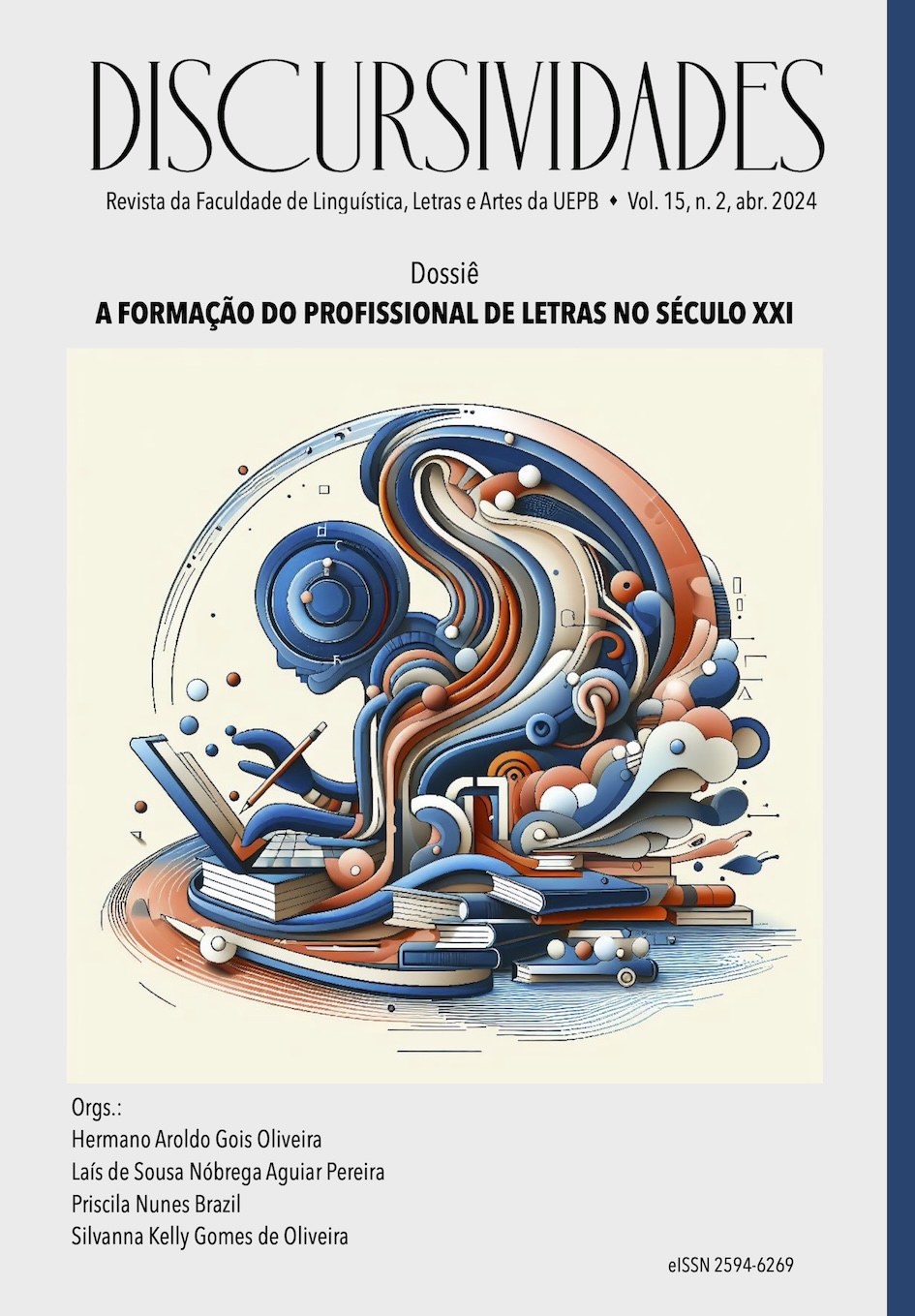Game on: evaluating the use of pedagogical games in English classes in the Supervised Internship
DOI:
https://doi.org/10.29327/256399.15.2-7Keywords:
Supervised internship, English language teaching, Pedagogical gamesAbstract
The use of technologies and games have been gradually adapted to the educational environment in English language classes. Thus, this work presents experiences with the use of digital technologies and pedagogical games, coming from the English language Supervised Internship. As theoretical contribution, we base ourselves on the contributions of Kapp (2012), Alves et al. (2014) and Ramos and Oliveira (2022), who discuss gamification, and Kumaravadivelu (2003) who corroborates the discussion of post-method and language teaching. Furthermore, Frigotto and Motter (2008) and Almeida Filho (1998) present the importance of play in the school environment, as well as the relevance of the use of technological devices, brought by Cortelazzo (1996), among others. Given the above, this research is classified as qualitative, field research and exploratory (PRODANOV; FREITAS, 2013). As a result, we found that, through games, students performed the activities successfully, in addition to being motivated and engaged in classes.
References
ALMEIDA FILHO, J. C. P. Dimensões Comunicativas no Ensino de Línguas. Campinas: Pontes, 1998.
ALVES, L. R. G; MINHO, M. R. S.; DINIZ, M. V. C. Gamificação: diálogos com a educação. In: FADEL, L. M. et al. (org.). Gamificação na educação. São Paulo: Pimenta Cultural, 2014. p. 74-97.
CORTELAZZO, I. B. C. Redes de comunicação e educação escolar: a atuação de professores em comunicações telemáticas. Dissertação (Mestrado em Educação), Faculdade de Educação, Universidade de São Paulo, São Paulo, 1996.
HELFER, F. Os jogos digitais como ferramenta para o aprendizado de língua inglesa. 2015. 33 f. Monografia (Graduação em Letras), Universidade de Santa Cruz do Sul, Santa Cruz do Sul, 2015.
FRIGOTTO, A.; MOTTER, R. O uso significativo dos jogos na aula de inglês. Secretaria de Educação do Paraná: Paraná, 2008. Disponível em: < http://www.gestaoescolar.diaadia.pr.gov.br/arquivos/File/producoes_pde/artigo_alice_rech_frigotto.pdf >. Acesso em: 03 jan. 2024.
GONSALVES, E. P. Conversas sobre iniciação à pesquisa científica. 3a ed. Campinas, SP: Editora Alínea, 2003.
KASDORF, Luíza. Jogos no ensino de línguas estrangeiras. 2013. 57 f. Monografia (Especialização em Línguas Estrangeiras Modernas), Universidade Tecnológica Federal do Paraná, Curitiba, 2013. Disponível em: < https://repositorio.utfpr.edu.br/jspui/bitstream/1/18995/2/CT_CELEM_2012_1_04.pdf >. Acesso em: 03 jan. 2024.
KAPP, K. M. The gamification of learning and instruction: Game-based methods and strategies for training and education. San Francisco: Pfeiffer, 2012.
KLEIMAN, A.; VIANNA, C.; DE GRANDE, P. A Linguística Aplicada na contemporaneidade: uma narrativa de continuidades na transformação. Calidoscópio, v. 17, n. 4, p. 724-742, 2019. Disponível em: < https://revistas.unisinos.br/index.php/calidoscopio/article/view/cld.2019.174.04 >. Acesso em 17 dez. 2023.
KUMARAVADIVELU, B. Beyond Methods: Macrostrategies for Language Teaching. New Haven: Yale University Press, 2003.
KUMARAVADIVELU, B. Language Teacher Education for a Global Society. New York: Routledge, 2012.
NASCIMENTO, A.; SANTOS, G.; SILVEIRA, T. Letramentos digitais e a formação inicial de professores: entre ser discente e tornar-se docente. Revista (con)textos linguísticos - letramentos e educação linguística, v. 13 n. 26, 2019. Disponível em: < https://periodicos.ufes.br/contextoslinguisticos/article/view/27607 >. Acesso em: 06 jun. 2023.
NUNES, A. O Lúdico na aquisição da segunda língua. Curitiba, 2002.
PIMENTA, S. Estágio: diferentes concepções. In: PIMENTA, S.; LIMA, M. Estágio e docência. São Paulo: Cortez, 2004.
PRESCHER, E. Jogos e atividades para o ensino de Inglês: the book of activities and games. Barueri, SP: DISAL, 2010.
PRODANOV, C.; FREITAS, E. Metodologia do trabalho científico. 2.ed. Novo Hamburgo, RS, 2013.
RAMOS, D.; OLIVEIRA, M. Jogos digitais e aprendizagem da língua inglesa em contexto não escolar: um estudo com crianças do ensino fundamental. Temática, n. 02, p. 230-246, 2022. Disponível em: < https://periodicos.ufpb.br/index.php/tematica/article/view/62262/35101 >. Acesso em: 06 jun. 2023.
ROLIM, A.; GUERRA, S.; TASSIGNY, M. Uma leitura de Vygotsky sobre o brincar na aprendizagem e no desenvolvimento infantil. Rev. Humanidades, v. 23, n. 2, p. 176-180, 2008. Disponível em: < https://brincarbrincando.pbworks.com/f/brincar%20_vygotsky.pdf >. Acesso em: 03 jan. 2024.
Downloads
Published
How to Cite
License
Copyright (c) 2024 Francisco Gabriel Cordeiro Silva; Ana Patrícia de Farias Aires; Mayara Monick de Pereira Gusmão

This work is licensed under a Creative Commons Attribution 4.0 International License.
Authors who publish in this journal agree to the following terms:
a) Authors retain copyright and grant the journal the right of first publication. The articles are simultaneously licensed under the Creative Commons Attribution 4.0 International Public License (CC BY 4.0) which allows the sharing of the work with acknowledgment of its authorship and initial publication in this journal.
b) Discursividades journal offers immediate free access to its content, following the principle that making scientific knowledge available to the public free of charge provides greater global democratization of knowledge.






